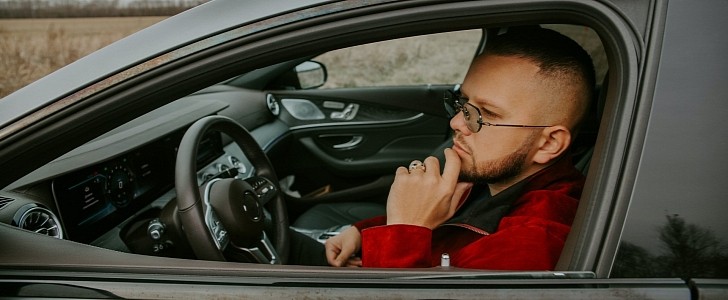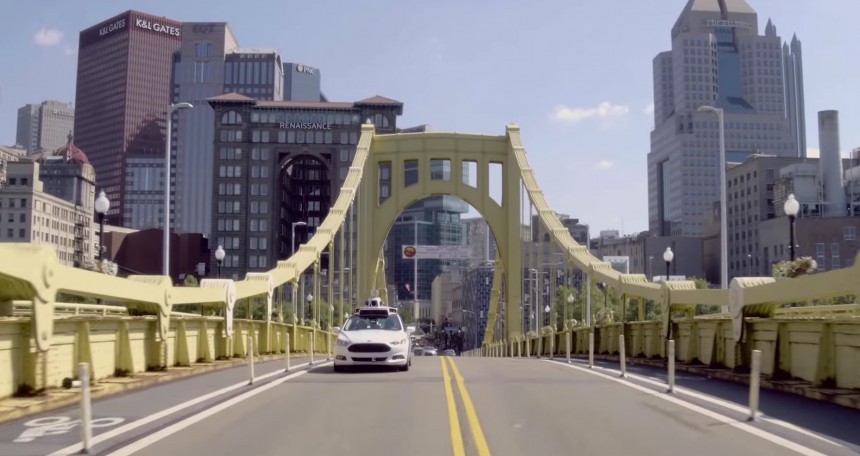I do not know how closely you follow statements made by CEOs of companies that get involved in the "gig economy," but I think I am being too close and need to stick to the two-second rule here. Most of those statements are an attempt to get people to use their services more, but they seem to miss something.
For example, the latest statement that caught my attention was made by the Vice President and Head of Turo in Canada, Cedric Mathieu. I am sure that he is very good at what he does, but there was a part of his statement about car ownership that does not make any sense or is just ironic. To clarify, it does not make any sense to me.
In the company's latest release, which was a study on car ownership in Canada, he stated the following: "Car ownership is an inefficient model, but the alternatives are limited for Canadians who still need access to a vehicle." The latter probably is true, but the former is ironic, to say the least.
In fairness, he also stated that there is a "paradox when it comes to car ownership. It is clear that car ownership is still a central part of Canadian life, but these cars largely go unused while costing owners thousands of dollars a year."
In his view, "peer-to-peer car sharing is one solution that helps reconcile these realities –making car ownership more affordable for those who need a vehicle while expanding accessibility to one for those who don't. This model paves the way for a future where cars are put to better use, allowing for fewer cars on the road, but accessed by more people."
With those quotes above, can you see what I saw? Let me point it out. The Vice President and Head of a company that runs an app that is developed strictly for peer-to-peer car sharing said that "car ownership is an inefficient model." Well, yes, it is expensive to own a car, but if nobody owned one, there would be no cars available for peer-to-peer renting. Do you see where this is going?
To the best of my knowledge, Turo does not own any cars that are rented through the app, Uber does not have drivers as its employees or owns vehicles, Airbnb does not own property, and the list goes on.
Similar statements were made, in various forms, by CEOs of ride-sharing companies, as they call themselves.
In reality, they are ride-hailing companies, as each “shared car” comes with a driver, who is usually its owner. Those CEOs have also criticized individual car ownership as being faux pas, but if people did not own cars, who would drive “your” customers around, and in what?
Might I underline the fact that, without people who own cars and do not drive all the time, the business you represent would not have a point existing? That is without mentioning the fact that in Eastern Europe, for example, people are sick of the idea of sharing things with their peers and prefer to own whatever they use. Communism does take a toll on people, and it lasts even after it is gone.
It is easy to criticize people for simply owning cars and then to claim that your company provides an excellent service that eliminates the need to own a personal vehicle. That may be true in most cases, but there is always a but here, and Canadian car owners underlined it twice. They said they needed cars for commuting and convenience.
Knowing that you have a car that you can use, which has fuel in its tank and can be driven right when you require it is great if you have an emergency in the middle of the night, or you just need to transport a heavy item. Or you live somewhere a bit more remote, and public transportation is nonexistent. Why pay to rent someone's car if you can afford to own one?
While commuting can be done with public transportation in many countries, the convenience part is where the apps can make a living, except for one thing, and it is availability. I was interested in using a few of these car rental services that worked through apps when they first were available where I live.
Some services just offered e-scooters, bicycles, or electric mopeds. I only rented those e-scooters just to see how they work, and for a bit of fun, but never required anything else.
I liked the idea of being able to get on something that would be faster than walking but did not require waiting for someone else. They did not work out for me, and I have yet to rent a car through an app for personal use, but I did rent one for work purposes.
So, with that, please stop criticizing people for owning cars. Private property is a right that people have died for, and not owning things is fine if people choose so, not if you make it seem as being obsolete.
It is perfectly normal to own a car, and the automotive industry would fall on its face if people stopped buying vehicles so that they could rent from others instead. When everyone tries to do so, what are we left with? Who are you going to rent a car from if no other people own one, and they want to rent a car from you? These are rhetorical questions, do not bother answering.
Vehicle manufacturers might attempt to offer the solution in the form of mobility subscriptions, but these may only work for some people. Those who cannot afford a new car or who struggle to get a beater just for basic transportation will be left without a means of transportation. Either that or they will stay in a circle of poverty where they will have to work to be able to afford to go to work in a rented vehicle.
In the company's latest release, which was a study on car ownership in Canada, he stated the following: "Car ownership is an inefficient model, but the alternatives are limited for Canadians who still need access to a vehicle." The latter probably is true, but the former is ironic, to say the least.
In fairness, he also stated that there is a "paradox when it comes to car ownership. It is clear that car ownership is still a central part of Canadian life, but these cars largely go unused while costing owners thousands of dollars a year."
In his view, "peer-to-peer car sharing is one solution that helps reconcile these realities –making car ownership more affordable for those who need a vehicle while expanding accessibility to one for those who don't. This model paves the way for a future where cars are put to better use, allowing for fewer cars on the road, but accessed by more people."
With those quotes above, can you see what I saw? Let me point it out. The Vice President and Head of a company that runs an app that is developed strictly for peer-to-peer car sharing said that "car ownership is an inefficient model." Well, yes, it is expensive to own a car, but if nobody owned one, there would be no cars available for peer-to-peer renting. Do you see where this is going?
To the best of my knowledge, Turo does not own any cars that are rented through the app, Uber does not have drivers as its employees or owns vehicles, Airbnb does not own property, and the list goes on.
Similar statements were made, in various forms, by CEOs of ride-sharing companies, as they call themselves.
Might I underline the fact that, without people who own cars and do not drive all the time, the business you represent would not have a point existing? That is without mentioning the fact that in Eastern Europe, for example, people are sick of the idea of sharing things with their peers and prefer to own whatever they use. Communism does take a toll on people, and it lasts even after it is gone.
It is easy to criticize people for simply owning cars and then to claim that your company provides an excellent service that eliminates the need to own a personal vehicle. That may be true in most cases, but there is always a but here, and Canadian car owners underlined it twice. They said they needed cars for commuting and convenience.
Knowing that you have a car that you can use, which has fuel in its tank and can be driven right when you require it is great if you have an emergency in the middle of the night, or you just need to transport a heavy item. Or you live somewhere a bit more remote, and public transportation is nonexistent. Why pay to rent someone's car if you can afford to own one?
While commuting can be done with public transportation in many countries, the convenience part is where the apps can make a living, except for one thing, and it is availability. I was interested in using a few of these car rental services that worked through apps when they first were available where I live.
Some services just offered e-scooters, bicycles, or electric mopeds. I only rented those e-scooters just to see how they work, and for a bit of fun, but never required anything else.
So, with that, please stop criticizing people for owning cars. Private property is a right that people have died for, and not owning things is fine if people choose so, not if you make it seem as being obsolete.
It is perfectly normal to own a car, and the automotive industry would fall on its face if people stopped buying vehicles so that they could rent from others instead. When everyone tries to do so, what are we left with? Who are you going to rent a car from if no other people own one, and they want to rent a car from you? These are rhetorical questions, do not bother answering.
Vehicle manufacturers might attempt to offer the solution in the form of mobility subscriptions, but these may only work for some people. Those who cannot afford a new car or who struggle to get a beater just for basic transportation will be left without a means of transportation. Either that or they will stay in a circle of poverty where they will have to work to be able to afford to go to work in a rented vehicle.



























